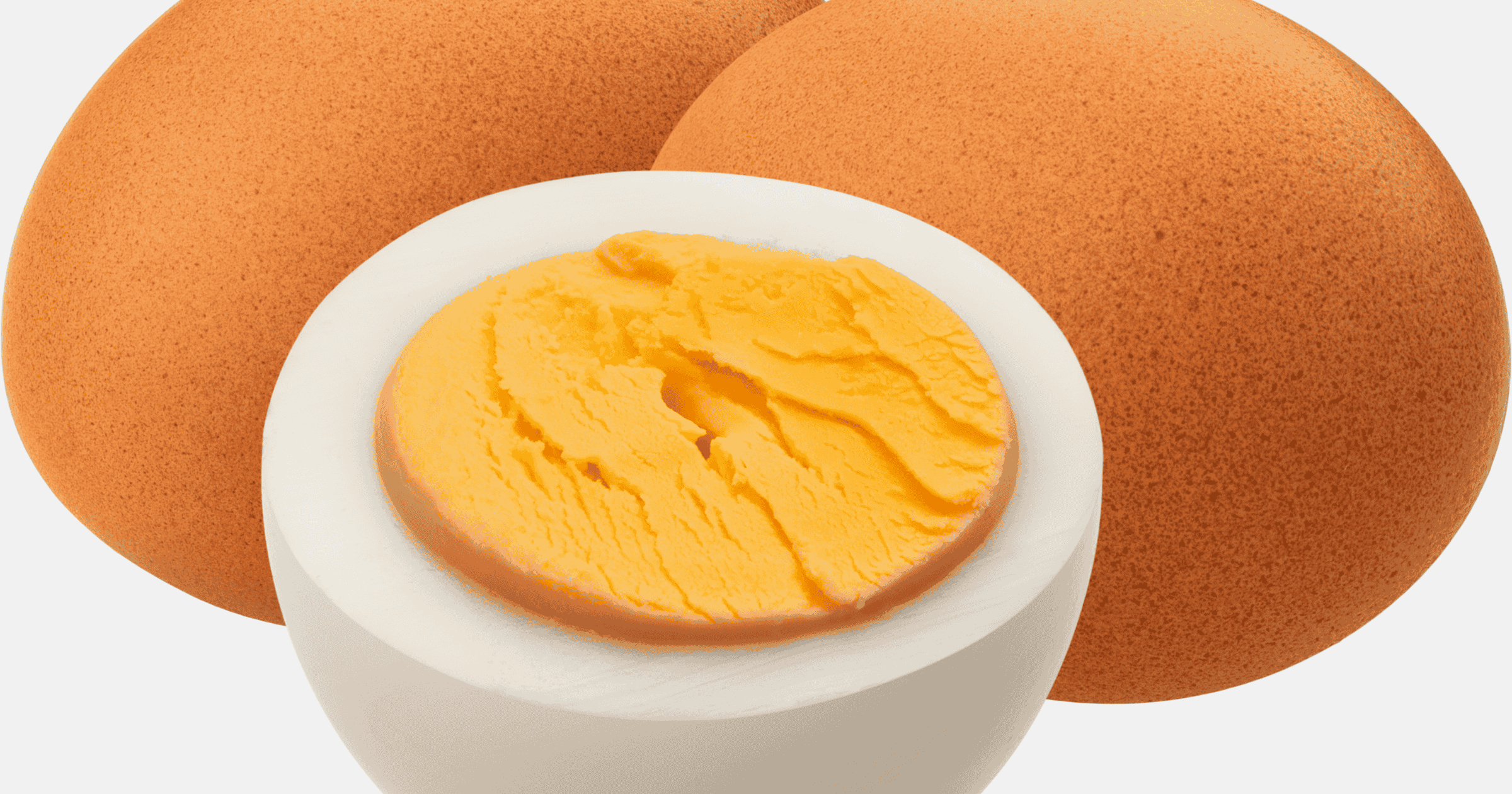
08 Apr Why Egg Yolk Color Varies in Nigeria: What It Really Means
EvIntroduction: What’s the Deal with Egg Yolk Colors?
Have you ever cracked open a fresh egg in Nigeria and noticed the yolk looked different from what you expected? Sometimes it’s bright yellow, other times it’s deep orange, or even pale. You might have wondered: Is one healthier than the other? Does this mean the egg is organic or more nutritious?
You’re not alone—many Nigerians are puzzled by the variation in egg yolk color. In this post, we’ll explain why egg yolk color varies, what it tells you about the chicken’s diet, and whether it impacts the quality or nutritional value of the egg.
1. The Chicken’s Diet Is the #1 Factor
The biggest reason yolk color varies is simple: what the chicken eats.
In Nigeria, chicken feed varies greatly between commercial poultry farms, backyard farmers, and organic free-range setups. The diet of a hen directly affects the pigments in the yolk, specifically from carotenoids (natural plant-based pigments).
Common Diets and Their Yolk Results:
- Maize-based feed (very common in Nigeria): Produces yellow to light orange yolks.
- Greens and vegetables (like pumpkin leaves, ugu, and pawpaw leaves): Lead to darker orange yolks due to higher xanthophyll (a carotenoid).
- Free-range diets (grasses, bugs, seeds): Typically produce rich golden-orange yolks.
So, if you’re cracking an egg and see a deep orange yolk, chances are the chicken had access to a more diverse, natural diet—often a sign of free-range or organic farming.
2. Is a Darker Yolk Healthier?
A common belief in Nigeria is that darker egg yolks are more nutritious. While yolk color alone isn’t a perfect indicator of nutrition, it does tell part of the story.
Here’s what studies and egg science suggest:
- Darker yolks often contain more carotenoids (like lutein and zeaxanthin), which are antioxidants that support eye health and immunity.
- However, protein content, fat levels, and basic vitamins (A, D, E) don’t change drastically just because of yolk color.
Bottom line: While a darker yolk can mean the chicken had a more natural and nutritious diet, all fresh eggs—regardless of yolk color—offer solid nutrition. What matters more is how the chicken was raised and fed.
3. Farm-Fresh Eggs vs Store-Bought: What to Expect in Nigeria
In Nigeria, the yolk color often gives away where the egg came from:
Store-Bought/Commercial Eggs:
- Typically lighter yellow yolks.
- Chickens are fed uniform, maize-heavy diets, sometimes with synthetic additives for consistency.
- Less variation, less nutrition variety.
Local or Backyard Farm Eggs:
- Deeper orange or variable yolks.
- Hens often forage or are given leftovers like vegetables and grains.
- More diverse diets mean richer yolk color and flavor.
If you’re buying from a local egg farm in Lagos or other Nigerian cities, you’ll probably notice that the yolks are darker and the eggs taste better—these are usually free-range or semi-organic birds.
4. Misconceptions About Yolk Color in Nigeria
Many Nigerians assume certain yolk colors mean:
- The egg is spoilt or old
- The chicken is sick
- The egg is synthetic or unnatural
Let’s clear that up.
Myths vs. Facts:
- Myth: Pale yolks are bad.
- Fact: Pale yolks simply mean less pigmentation in the diet.
- Myth: Orange yolks are always better.
- Fact: They often indicate a varied diet, but not always better overall nutrition.
- Myth: Yolk color is artificially changed.
- Fact: Some farms do add natural color enhancers to feed (like marigold petals), but it’s not the norm in Nigeria.
Unless the yolk has a strange smell or the egg is expired, yolk color alone isn’t a reason to worry.
5. How Nigerian Climate and Farming Practices Play a Role
In Nigeria’s tropical climate, access to natural foraging materials like green plants, insects, and seeds is abundant—especially during the rainy season. This means free-range chickens in Nigeria often have access to:
- Ugu (fluted pumpkin)
- Cassava leaves
- Insects
- Sorghum or millet
These diets naturally enhance the yolk’s color, making Nigerian farm-fresh eggs some of the most vibrant and flavorful you’ll find. In contrast, during the dry season, when greenery is scarce, yolk colors may become paler unless supplemented with leafy feed.
6. Do Nigerians Prefer a Particular Yolk Color?
Consumer preferences vary across Nigeria, but increasingly:
- Restaurants and chefs in Lagos prefer deep orange yolks for presentation and taste.
- Health-conscious Nigerians associate orange yolks with better nutrition.
- Some rural markets sell eggs based on yolk color, charging more for “rich yolk” eggs.
So yes, yolk color is not just a scientific curiosity—it’s part of consumer behavior and pricing trends in Nigerian egg markets.
7. Tips for Buying Eggs with Better Yolk Quality in Nigeria
If you want consistently vibrant yolks with great taste and better potential nutrition, here’s what to look for:
- 🥚 Buy from trusted local farms that allow free-range or organic feeding.
- 🌿 Ask what the hens are fed—look for diets that include greens or local vegetables.
- 🐔 Choose pasture-raised eggs, which generally have richer yolks and better flavor.
- 📍 Visit farmers’ markets in Lagos, Abuja, Port Harcourt, or local communities to source directly.
The key is supporting farms that care about their chickens’ diets. Not only will you get healthier eggs, but you’ll also support sustainable and ethical farming in Nigeria.
Conclusion: The Color Tells a Story, But Not the Whole One
Egg yolk color in Nigeria varies because of diet, season, and farming style—not because one egg is “bad” and another is “good.” Understanding yolk color can help you make better buying decisions, especially if you value nutrition and support for local farms.
Whether it’s yellow or deep orange, the best eggs are fresh, local, and produced by chickens that eat a diverse, natural diet.
Looking for nutrient-rich eggs with deep orange yolks in Lagos or Nigeria?
Contact us today to order fresh organic and free-range eggs delivered straight to your door.
Recent posts
- How to Make Akara and Moi Moi with Farm Eggs | Delicious Nigerian Recipes
- How to Make Perfect Omelettes with Farm Eggs | Easy, Delicious Recipe
- Easy Egg Salad Recipes with Farm Fresh Eggs | Delicious & Nutritious
- Deviled Eggs with Local Nigerian Ingredients | Easy Recipe
- Delicious Nigerian Dishes Made with Eggs | Tasty Egg Recipes
Your cart
Your cart is currently empty!








No Comments